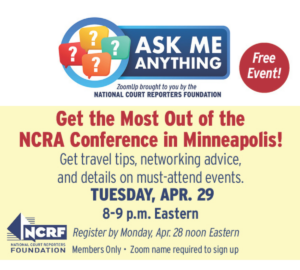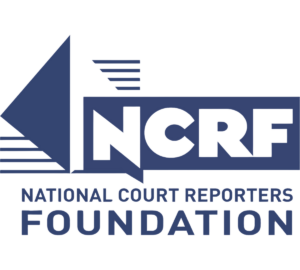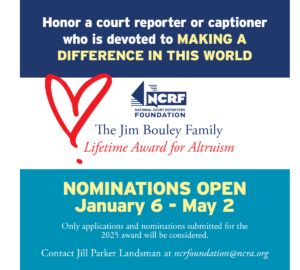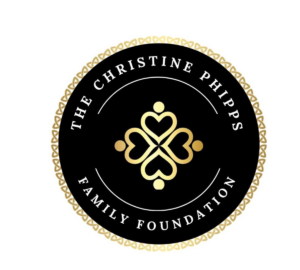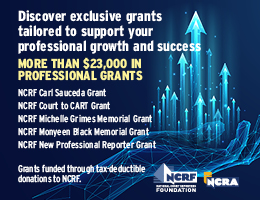According to industry projections, in less than five years the demand for court reporting will exceed supply, resulting in more than 5,000 open positions. However, you cannot assume that simply having a court reporting degree will get you hired. Naturally, the most important piece to getting hired is to hone your craft, and you can only do so through practice, but this alone is not enough, as everyone else looking for court reporting and captioning positions will have the same skill sets.
Whether you are a student or a seasoned professional looking for a new opportunity, these seven principles will help you secure that next job.
Networking
Everyone you meet is part of your network and could end up being instrumental in helping you build a successful career, and you should treat them accordingly. Always be courteous and professional in your interactions. This includes instructors and classmates in school, people you meet at your state association and NCRA events, and people you meet at your internships.
Cathy Carpenter, a freelance reporter from Seminole, Fla., and the 2016 recipient of NCRF’s New Professional Reporter Grant, agrees that networking is a must.
“I can’t stress enough how important it is to network with as many reporters as you can,” Carpenter says. “The knowledge and support I get from others in our field is invaluable. There are a lot of firms out there. Speak with multiple reporters who work for different firms to get information on policies and procedures and then find the best fit for you.”
Get involved
Getting involved with an organization such as NCRA or your state association provides an opportunity to network and show other reporters and future employers how passionate you are about the profession.
“I met one of the owners of the firm I work with through our state association while I was a student, and after my initial phone call, another reporter that was in the office at the time remembered me from past conventions,” says Carpenter. “Court reporters love to help students, and they remember the ones that attend meetings and conventions and ask questions.”
Make the most of your membership by attending events and joining a committee. As a student, you can earn a free membership to NCRA through NCRF’s Oral Histories Program by transcribing two interviews, and it doubles as great practice to hone your craft.
Find a mentor
“I was very fortunate to grow up with a family-owned court reporting business,” says Angela Baker, RPR, president of Depo International. “When I was 12, I began frequenting the Depo International office after school and in the summers. I thought it was super fun to work in the production department with all of the fancy copy machines and stamps and assortment of pens and Post-Its galore. My mom – court reporter extraordinaire [Patricia Carl] – still brings up the time my bestie tagged along with me to the office, and we made up our own business cards for Angela Carl & Associates. That’s really where it all started.”
Even without a familial connection, you can find a mentor. Find a court reporter or captioner whom you admire, and ask them if they’d be willing to meet for coffee or schedule a phone call to discuss the profession. The term mentor often sounds more official than it needs to be. It can be a casual relationship between an established professional and an aspiring one, built through an initial conversation soliciting advice. You might even already have a mentor without realizing it.
Once you have a meeting set up, prepare a few initial questions (e.g. How did you get into court reporting? What advice would you give a student like me who aspires to own my own firm?). Then let the conversation flow from there. The last question you ask should always be “May I stay in touch with you?” With their permission, you can continue to reach out periodically to ask a question, share an exciting update, or schedule another coffee or lunch. You should follow up after the initial meeting with a thank-you though since they are a busy professional who took time away from work to help you. This can be an email, but a handwritten thank-you note will set you apart. After a few interactions, you’ll have built a relationship, and when you’re job hunting, you can ask this person if they have any advice on where to look.
“My first jobs out of school were facilitated through my mentors,” Carpenter says. “They put me in touch with firm owners or were firm owners themselves.” Carpenter’s mentors vouched for her work ethic and professionalism to help get her started.
You can also find mentors through NCRA’s Virtual Mentor Program, and many state associations have their own mentoring programs as well.
Treat your internships like a job
Some students treat their internship as yet another requirement for graduation. Successful students, however, will treat it as a semester-long job interview and will soak up as much knowledge and experience as possible.
“[Students] have a great deal to learn to become a seasoned reporter or captioner,” said Audrey Greco, vice president of business development for Karasch & Associates. “During their internship, they have experienced all of the various types of jobs, i.e. video depositions, depositions, arbitrations, hearings, classes, events, remote, on-site, etc. whether it be in captioning or litigation in order to build confidence.”
Your internship supervisors will be your references for jobs and may even hire you themselves if they are able.
Résumé
All your involvement and internships will mean nothing if your résumé isn’t perfect. Remember that you are entering a profession where accuracy is required, and your résumé is no exception.
“Spell-check your résumé! So many times we see spelling or grammatical errors, and, unfortunately, those candidates do not get an interview,” Baker says.
Firms often have different preferences for résumés and cover letters. When approaching a firm about a job (either to be an employee or as a freelancer), it’s helpful to use your network to find someone at the firm to ask what they are looking for specifically. For instance, Baker is looking for something that stands out: “In order to set yourself apart with a résumé in our age of technology, a video résumé would be outstanding. At a minimum, put a professional photo of yourself on the cover letter. This will add a personal touch, make you relevant and different, and show your enthusiasm for working in this very rewarding and interesting profession.”
Certifications
Add some letters after your name to further differentiate yourself. Certifications showcase your dedication to the profession and commitment to improving yourself to be the best reporter possible.
For some, certifications will be a requirement for getting hired, “as clients are requesting certified providers more and more,” Greco notes. Certifications can set clients’ minds at ease knowing that they have hired a qualified reporter. Greco also suggests becoming a notary.
Ultimately, as more reporters add certifications to their names, you must do the same or get left behind.
Intangibles
There are always little things that you can’t put on your résumé, but you can do to set yourself apart from others.
“We are most interested in hiring team players who are accountable, professional, reliable, and willing to go the extra mile to meet the standard of service that we are known for,” says Baker. “Service to our clients is of the utmost importance, and we always strive to go above and beyond the standard. Basically, we seek out individuals who love their profession.”
“Be punctual, be present, communicate, never be afraid to ask a question, and always strive for excellence,” Baker adds. “Keep up on technology. You will be working with the most brilliant, educated pool of clients — trial lawyers — and being kind and respectful, in addition to seeking to always perform at 100 percent, will set you apart.”
This is where networking and internships are really important as these people can vouch for your professionalism, punctuality, reliability, and the standard of your work.
By following each of these recommendations, you should be well on your way to securing that first job out of school. For additional help, look for articles on each of these individual principles in future editions of the JCR.
April Weiner is the Foundation Manager for the National Court Reporters Foundation. She can be reached at aweiner@ncra.org.
Looking for a job? Visit NCRA’s online classifieds to see what’s currently available.
What is NCRF’s Corrinne Clark Professionalism Institute?
In 2015, the National Court Reporters Foundation established the Corrinne Clark Professionalism Institute, which is dedicated to aiding the education of court reporting students and new professionals about professionalism, branding, and building a successful career. Named for the late Corrinne Clark — wife of the late Robert H. Clark, NCRA’s longest tenured librarian-historian — the Institute was made possible by a generous donation contributed by Donna Hamer, Santa Paula, Calif., Robert’s cousin.








